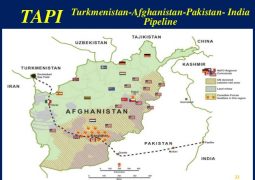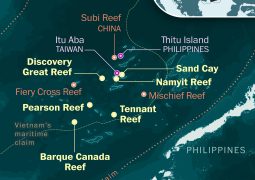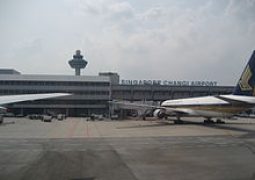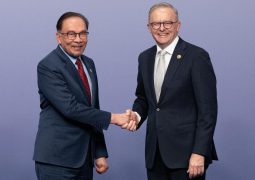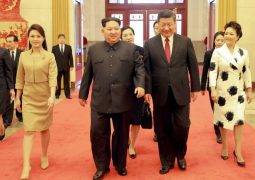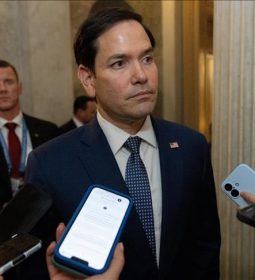Reassuring Asia of America’s Commitment to the Asia-Pacific
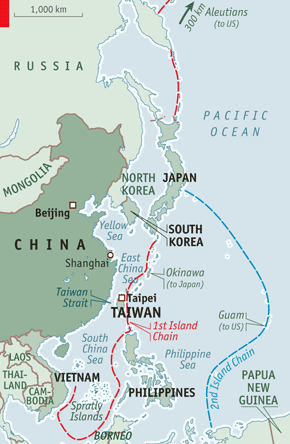
The Trump administration’s defense-budget increase should come as welcome news to Asian countries worried about mounting threats to regional order. A $54 billion boost this year would improve U.S. military readiness and pay for investments in new platforms and innovative technologies.
The Pentagon is now at work on the details, and the precise contours of its submission to Congress remain a work in progress. As the process unfolds, the administration should use the opportunity to reassure key Asian nations.
Security challenges in the Asia-Pacific are rising. North Korea continues to make advances in ballistic missiles and nuclear warheads, and the day is nearing when Pyongyang can deliver a nuclear payload to the continental U.S. China’s two-decade program of military modernization continues, and Beijing has made major investments in anti-access and area-denial capabilities aimed at backing U.S. forces away from the western Pacific. Russia has become more regionally active, conducting joint exercises with China’s navy in the South China Sea and reportedly establishing a strategic bomber division for Pacific patrols.
In the meantime, Washington’s sequestration-era budgets have undermined military readiness, produced shortfalls in key capabilities and constrained America’s ability to project power in Asia. The result is a shift in the military balance away from the U.S. and its regional allies.
The new budgetary era offers the chance to start tipping it back. A concrete step would be to establish an Asian Reassurance Initiative, akin to the European Reassurance Initiative (ERI) that took shape in the latter years of the Obama administration.
First proposed in 2014 at NATO’s Warsaw summit, ERI aims to assure American allies of Washington’s commitment to their security amid an increasing Russian threat. Funding for the program has risen to $3.5 billion this year, permitting the U.S. to increase force rotations through Europe, add allied exercises and training, improve infrastructure and enhance the military capacity of NATO members.
An Asian analogue should have similar aims. Sen. John McCain has called for one such variant, proposing a five-year, $7.5 billion Asia-Pacific Stability Initiative. Backed by a bipartisan group of U.S. House and Senate members, the effort would increase U.S. munitions stocks in the Pacific, build new infrastructure, expand military exercises and enhance the capacity of key allies and partners. The overarching goal would be to enhance credible combat power and strengthen the ability of allies to work and, if necessary, fight together.
At a moment when Australia, Japan and other regional partners are increasing their own defense budgets, the time is right for such an American step. It would signal commitment to a region rattled by China’s rise and North Korea’s threats, and it would strengthen the bonds among countries committed to preserving a rules-based order.
While the new Trump defense budget may help make this possible, an Asian Reassurance Initiative must include U.S. State Department efforts as well. Here there is reason for worry, since initial reports suggest the administration is seeking to cut the department’s budget by nearly 40%. Whether this represents a final answer or merely the opening of a negotiation remains to be seen; what’s clear is that diplomatic programs can play a critical role in reassuring Asian partners.
State’s foreign-military financing program provides grants and loans to countries like Indonesia, the Philippines and Vietnam to enhance their military capacity. The department’s International Military Education and Training program exposes foreign officers to the U.S. and fosters lifelong relationships with American personnel. Then there’s the raft of soft-power programs that project influence in Asia. There is a strong case for stepping up these efforts instead of cutting them back.
Spending more in Asia is no exercise in charity. Rather it is a recognition that in any test of wills, measuring relative strength doesn’t imply simply comparing an adversary’s power with that of the U.S.
What matters more is American strength added to that of its treaty allies and partner nations. In this measure, both strengthening security ties with Pacific nations and helping them resist coercion accrues to U.S. benefit.
The Obama administration’s effort to rebalance U.S. foreign policy to the Asia-Pacific won a rare measure of bipartisan support. The new budgetary era offers the chance to give greater meaning to the rebalance by resourcing it at a level commensurate with its strategic importance.
An Asian Reassurance Initiative would help seize this opportunity. The Trump administration should not let it pass by.
Mr. Fontaine is president of the Center for a New American Security in Washington.
- Previous Israeli Lawmakers Advance Bill to Curb Loudspeakers in Muslim Call to Prayer
- Next Iran on Agenda as Putin, Netanyahu Hold Talks in Moscow



